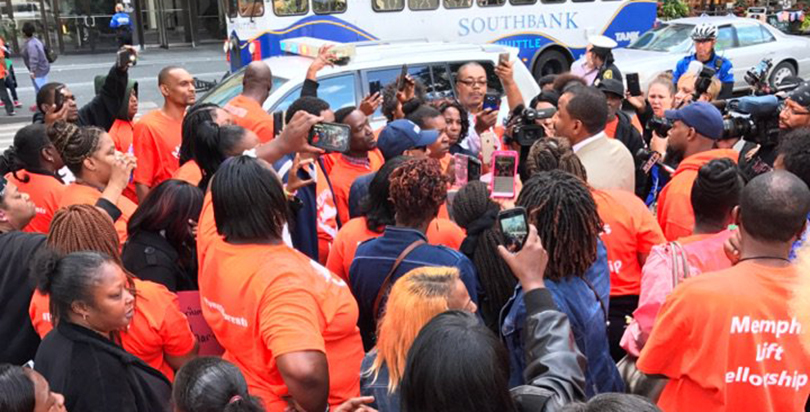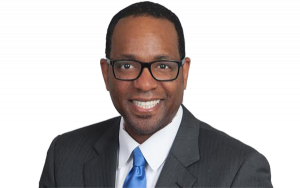Rice: NAACP’s Anti-Charter Vote Was Disheartening — but What Happened on the Streets of Cincinnati Wasn’t

That is how I felt leaving Cincinnati Sunday evening. The outcome wasn’t what I’d hoped for. The NAACP Board of Directors voted for a moratorium on all charter public schools, even voting against the expansion of high-performing, high-quality charter schools created by black community leaders and supported by local chapters of their own organization.
The board voted against the interests of black charter school parents and students — more than 700,000 of their constituents and tens of thousands more on waiting lists to attend charter schools nationwide.
(The 74: As NAACP Votes for Charter Moratorium, School Families Rally Outside)
But what I saw in Cincinnati — and who I met — gave me even greater hope about the future of the movement for quality schools.
I met black charter school parents and grandparents, such as those in Memphis Lift, who have been awakened to education activism. These parents and grandparents traveled nine hours to confront the NAACP board and let them know about the real-life experiences of black charter school students and parents. They left, not in anger, but more committed than ever to fight on behalf of their children and, as one demonstrator told me, for my child, too.
I am inspired because I know that black parents nationally will soon be joined by Latino, Native American and Asian charter school parents raising their voices against any organization that denies even one black or brown child the opportunity for a better education. Such organizations cannot seriously consider themselves a part of the solution.
(More: Dear NAACP, Before Your Charter School Vote, One Oklahoma Parent Wants to Share His Experience)
The NAACP board members gave me hope, too. I met members who were against the moratorium. Some felt compelled to vote for it for their own reasons. Others argued for a more commonsense strategy. All of them — and even some members who supported the moratorium — were willing to learn more about charter schools.
Therefore, I’m hopeful that the organization’s working group on this issue will include black charter school leaders and advocates, especially those from black institutions like the AME Church, Delta Sigma Theta sorority and the UNCF, as well as black parents like those representing Memphis Lift.
Lastly, I left Cincinnati inspired because the discussion of access to quality schools in communities that most urgently need choices is now front and center. Other traditional black institutions are now turning to black charter school parents, school leaders, advocates and allied organizations to get more information. These institutions are showing support because they now know they are not alone in their communities, cities, counties and states.
Black state representatives from New Jersey to Georgia to California — where the California Legislative Black Caucus issued a strong statement against the moratorium — are representing their constituents instead of the special interests. They’re doing so not as charter school supporters but as supporters of quality public schools no matter the delivery system.
Ultimately, the NAACP, the premier civil rights organization in American history, risks standing against the tide of its own constituents’ demands. In doing so, the NAACP is opposing what it has fought to create for more than 100 years. In Brown v. Board of Education, the NAACP opposed a system that sent black students to inferior schools. In the decades after, the NAACP supported busing and magnet schools so that the fate of black students wouldn’t be tied to their ZIP code.
The NAACP’s fight has been a continuation of the history of black people in America fighting for quality education by any means necessary, without regard for who stands in the way. African-American leaders have long created independent schools; Mary McCleod Bethune created what is today Bethune-Cookman University, the AME Church created Wilberforce University, and more and more black institutions are creating charter schools to educate black children the way we see fit.
This passion for quality education wasn’t snuffed out in Cincinnati; it was rekindled. The race to provide quality educational options for African-American students who most need them is not given to the swift or the strong, but to those who endure to the end. I am inspired because there is an army of black people in this nation ready to endure to the end for what is right.
The Walton Family Foundation and the Doris & Donald Fisher Fund support both the National Alliance for Public Charter Schools and The 74.
Get stories like these delivered straight to your inbox. Sign up for The 74 Newsletter

;)
